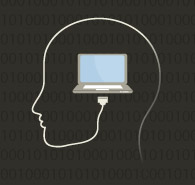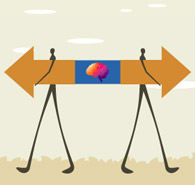by Siegfried Othmer, PhD
 W ith this newsletter, we are pleased to announce the release of our new book, “Brian’s Legacy”, the core of which is our son Brian’s journal, written during his college years. Through his journal we get to experience Brian’s evolving understanding of his own condition, his ongoing struggle to improve and manage his own health, and the gradual emergence of a more mature self. In my own contribution to the book, I provide some background on the challenges our family faced while raising a troubled child, and I provide my reflections on many of Brian’s journal entries. The book tells the story of our lives together, and also describes the path we traveled to the discovery of neurofeedback, which eventually became our life’s work.
W ith this newsletter, we are pleased to announce the release of our new book, “Brian’s Legacy”, the core of which is our son Brian’s journal, written during his college years. Through his journal we get to experience Brian’s evolving understanding of his own condition, his ongoing struggle to improve and manage his own health, and the gradual emergence of a more mature self. In my own contribution to the book, I provide some background on the challenges our family faced while raising a troubled child, and I provide my reflections on many of Brian’s journal entries. The book tells the story of our lives together, and also describes the path we traveled to the discovery of neurofeedback, which eventually became our life’s work.
Start reading today and get inspired!
Available on Kindle
Available on iTunes
Continue reading “Brian’s Legacy eBook Now Available”
 The June issue of The Atlantic Magazine features an article on brain hacking by Maria Konnikova. The article reviews various technology options that give some hope of sprucing up brain function. First of all there are the smart pills. Already the stimulants are finding use beyond their medical applications in boosting test performance among college students.
The June issue of The Atlantic Magazine features an article on brain hacking by Maria Konnikova. The article reviews various technology options that give some hope of sprucing up brain function. First of all there are the smart pills. Already the stimulants are finding use beyond their medical applications in boosting test performance among college students.



